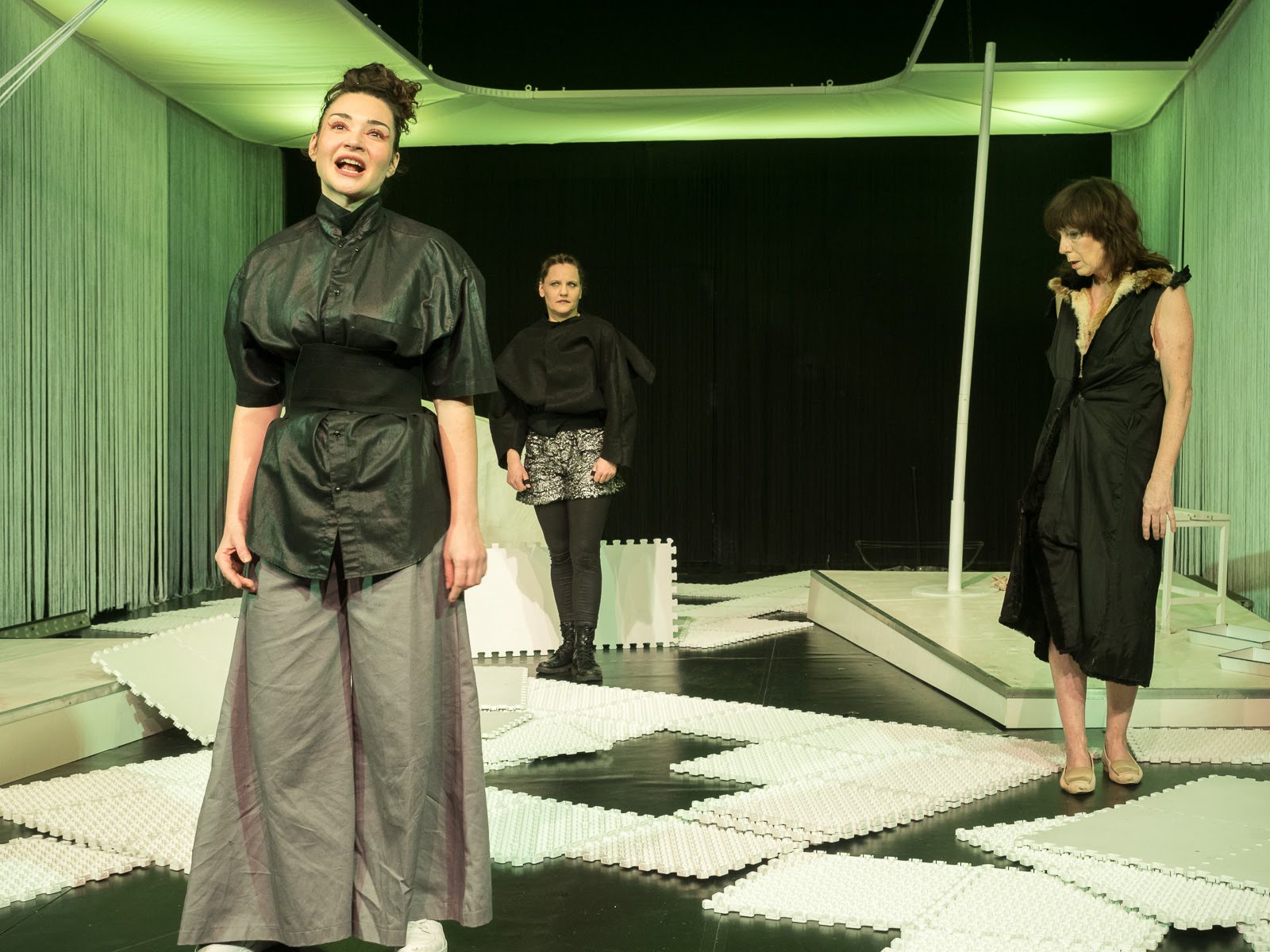


In a hostile winter landscape, three women with their own unwritten stories and goals come together. The play Im Herzen der Krähen (In the Heart of the Crows) is the second exploration, following „Das Verkommene Land“ (The decayed Land), of the patriarchal premise of our present.



A small bus stop on a forest road. A small bus stop in the desert. A small bus stop by the sea. A small bus stop on a high plateau. In a harsh winter landscape, three women with their own unwritten stories and goals come together.
Amid crows and wolves, they experience visions of a possible future while waiting for the bus, which only one of them believes will come. As the three women are overtaken by time, the question arises: How can a future be designed if one's own story is not written? Without a story, we cannot create a future. Many stories, especially those of women, remain unwritten. Suddenly, we hear the sound of an engine in the distance.
File: Program – Im Herzen der Krähen
Im Herzen der Krähen focuses on the theme of a possible future, which is more present than ever in the face of various crises. How can we break free from globally manifested patriarchal premises and attributions in our thoughts about the future? Is a solidarity-based salvation of the world still possible? And why is Kassandra not believed, but male prophets are? In a reinterpretation of the Kassandra figure, Im Herzen der Krähen envisions an intersectional future. Kaśka Bryla's text is based on interviews with most of those involved in the project. Through a mix of aerial and close-up shots, descriptive, performative and dramatic play, chorus and monologue, sound, video and music, divination, memory and transformation, a constellation is created outside of time, allowing for a different storytelling - and thus a different future.


Block parties are our safe space for all girls, trans*, inter*, non-binary, agender people, and women who love hip hop. Look forward to rap acts, dance battles, DJs, Q&As, and hip hop culture! We will also introduce you to the SISTER*QUEENS project and everything you can expect over the next two years. Delicious food will be provided. And everything is free!
This is the party where you support, celebrate, and inspire each other. A place full of inspiration, sisterhood, and strong artists from the Berlin hip hop scene.
Thursday, November 27, 2025
4:30 p.m. – 8:00 p.m.
SNIPES Studio44, Karl-Marx-Str. 97-99, 12043 Berlin

Do you have an idea for an art education project and would like to learn how to develop a concept and apply for funding? We offer a two-day training course at the Brücke-Museum on how to apply for funding, financial planning and legal forms. Participants have time to develop an educational concept. A selected concept will later be realized in the Brücke-Museum.
The workshop is primarily aimed at artists or artists with a history of migration. If there is still capacity, freelancers without a history of migration can also take part.
Date: September 15 and 29, 12am–5pm (two-day training course)
More information on the Brücke-Museum website.




peira.space uses cookies. If you click on 'OK' or continue to use the site, you agree to the use of cookies.